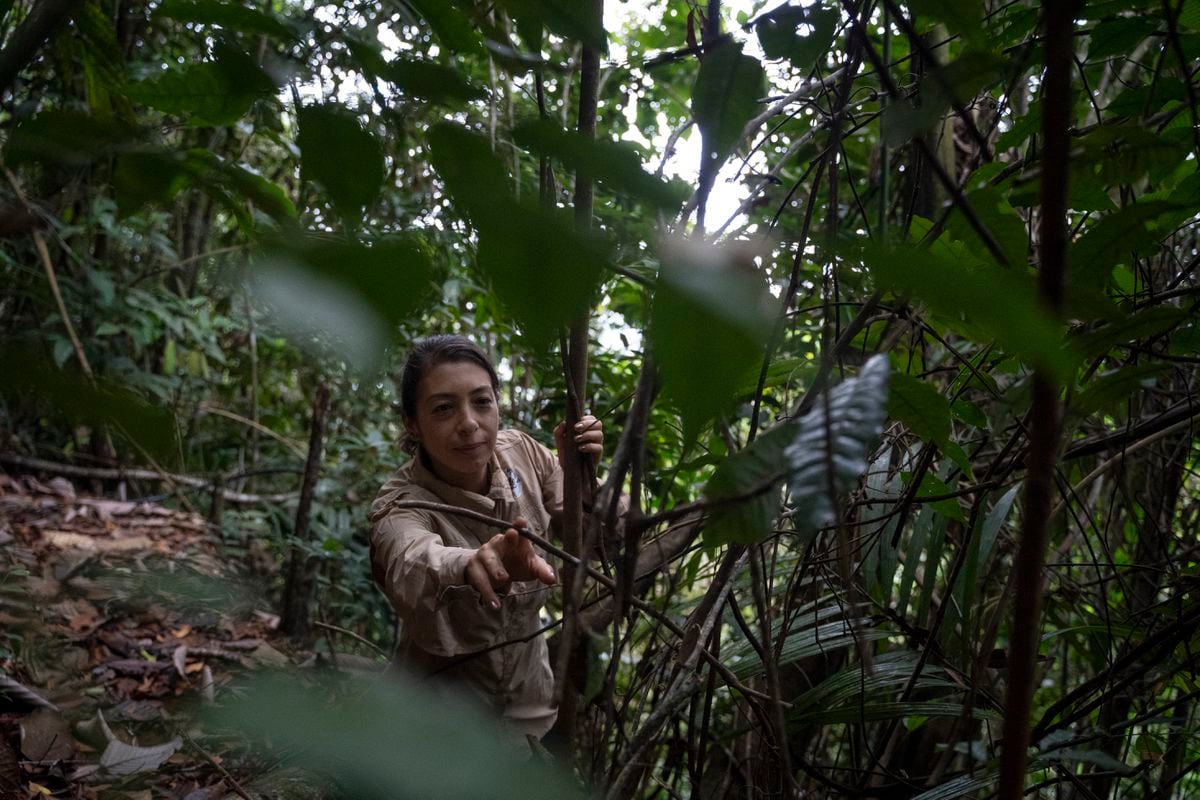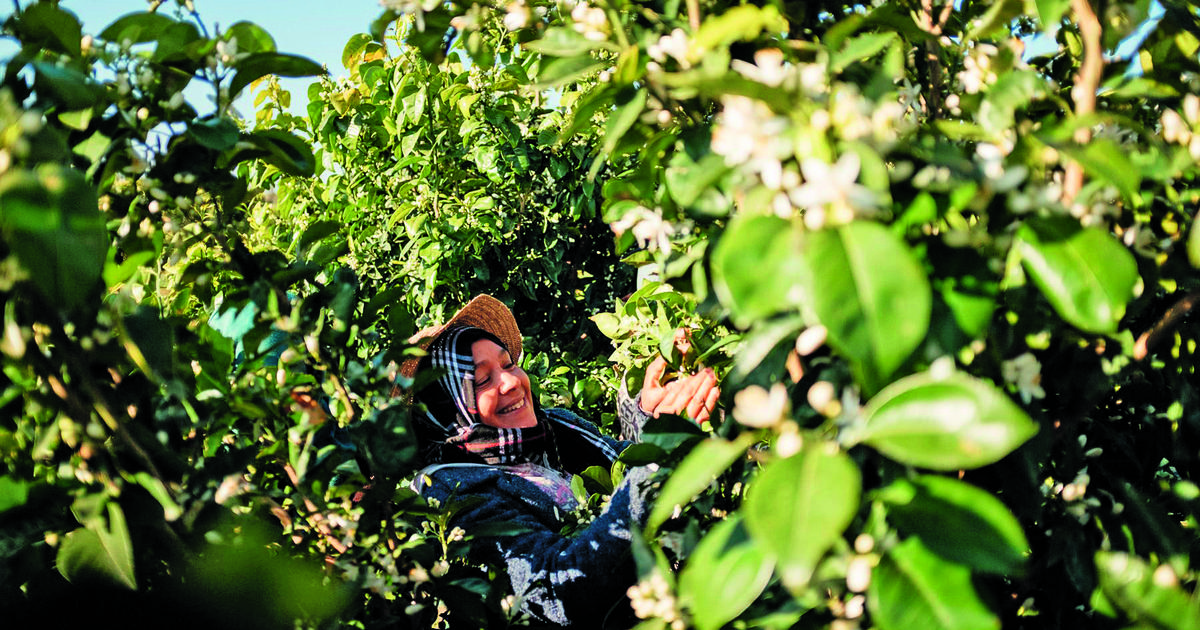After almost four decades exploring soundscapes, the naturalist Carlos de Hita (Madrid, 63 years old) has just released a book with recordings of his travels around the globe:
Sounds of the world
(Ed. Anaya Touring).
“This is the story of my life”, comments the nature sounds specialist, who believes that modern society has forgotten to listen.
His recordings transport us to incredible corners of the planet, but they also bear witness to a very worrying reality: "Many voices have disappeared, since more than 60% of the animals, of the number of individuals in the soundscape, have remained silent."
Ask.
What do you learn when you travel through natural spaces around the world keeping your ear in mind?
Response.
The main virtue of listening is that it forces you to calm down.
It is not enough to arrive at a place and start listening, because when you arrive at a place nothing sounds.
You need to stop, rest for a while and wait for things to happen.
There is a wonderful book about the snow leopard in which the travel writer Sylvain Tesson works with the nature photographer Vicent Munier and from him he learns the virtues of patience, of waiting, of staying in one place waiting for something to happen.
In the book, Tesson says that he has spent his whole life thinking that traveling is going to many places and he realizes that when you really see things is when you stay still in one place.
Q.
In all your travels, what is the sound that has impressed you the most?
R.
One of the sounds that has impressed me the most has been that of the volcano on La Palma.
When you have been looking for sounds for a lifetime, you suddenly discover a relatively small volcano here that exceeds all limits.
The noise from the volcano grew and grew and grew, it seemed like it would never stop, it had me hypnotized for three months.
It's not just the tremor, it's also explosions, rocks rolling down, the crystalline sound of the lava... Because you see the flowing lava as if it were chocolate, but it doesn't sound pasty, it sounds like glass, because the superficial crust is cooling.
Q.
And the sound of an animal?
A.
There are phenomena in nature that are overwhelming, like a jumping whale, the brutal sound of tons of water displaced at the same time.
And then the subtlety of the murmurs of the submerged whale itself, captured with an underwater microphone.
But more than the voice of a particular animal, what interests me is the soundscape.
Q.
How is a soundscape different?
R.
When I am in the jungle of central Rajasthan [in India], what I count is not how the tiger roars, but how the alarm spreads among the rest of the animals.
You don't see the tiger, but the jungle is telling you that he is there.
Those are the things that fascinate me.
Q.
What does the jungle sound like?
R.
In the Amazon the sound of rain is interesting.
In the jungle, each tree has its own sound of rain, each plant, each leaf.
When it stops raining, I stay to sleep a whole night in Belén de Pará [Brazil], near the mouth of the Amazon River, and something wonderful happens: in the darkness a cry rises with perfect order in the biophony.
The insects are distributed in layers, occupying all the acoustic strata, so that the voices of the different species do not interfere with each other.
Q.
In this book you also include sounds of human communities.
A.
Yes, the sound of the jungle is also the sound of the water drums of the Baká [indigenous Cameroonian] women, when they clap their hands on the surface of the river.
They make music with the jungle itself, they are playing the jungle.
It is the same as when the lamas of Mustang, in Nepal, blow their trumpets.
Drums, bells, horns are part of the soundscape like thunder, water or birds.
I am not talking about the noise of cities, traffic, current music, but the sound of human communities that live within a natural sound space.
Q.
You assure that the jungle is not as idyllic a place as you think.
R.
The jungle is the heart of darkness, you cannot survive there.
However, there is an exciting moment when I am at night in the middle of the jungle in Cameroon, where everything stings, everything hurts, surrounded by threatening noises, and in the distance I see a reddish cloud, smoke from bonfires, from which laughter emerges. the baka
It's the most hostile environment you can imagine, but there's a group of humans out there having a good time.
I think it is the image of humanity since the dawn of time.
Q.
In the 37 years that you have been recording the soundscape, has the sound of nature changed at all?
A.
It has changed in two ways.
On the one hand, many voices have disappeared, since more than 60% of the animals, of the number of individuals in the soundscape, have disappeared, have become silent... In the sound warp, there are fewer larks, fewer quails, fewer insects, fewer bees.
Today there are fewer voices in nature and that impoverishment of the natural concert is the story of the crisis.
But at the same time new voices are also beginning to appear.
For a few years, in my house in Valsaín [Segovia] I listen to the cicadas, when there were never any there.
That
raca raca
is like the sound of heat rising up the mountain.
For me, it's the sound of climate change.
Q.
Why is the sound so special?
R.
The sound has an advantage over the image and that is that it is immersive.
The sound surrounds you, you are not outside the scene, you are in the center of it.
The image is more descriptive, but the sound suggests everything, it has a very strong evocative capacity.
If you close your eyes, you can see what you are hearing.
Q.
In the rush of modern life, do we forget to listen?
A.
People who rush through life, that is, all of humanity, including myself most of the time, are missing out on all that enjoyment.
The only good thing about the lockdown in the pandemic was that people opened the windows and listened to nature in the cities.
It was said that nature had returned.
No, he hadn't come back, he was there, but people weren't listening, he was with the music, with headphones on, in a hurry... For today's civilization, the sound of nature that has accompanied us throughout our history is a exotic thing, we have become deaf to nature.
You can follow CLIMATE AND ENVIRONMENT on
and
, or sign up here to receive
our weekly newsletter
Subscribe to continue reading
Read without limits
Keep reading
I'm already a subscriber

/cloudfront-eu-central-1.images.arcpublishing.com/prisa/G5HBTZBBLBGZNL2JDFYONU63V4.jpg)


/cloudfront-eu-central-1.images.arcpublishing.com/prisa/VJEQPDZR7VGOFMRM3OPJZFFZJQ.jpg)



/cloudfront-eu-central-1.images.arcpublishing.com/prisa/5BXUKKEUHRB45CXJXXPGMWBHYM.jpg)
